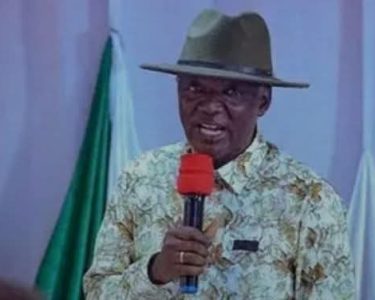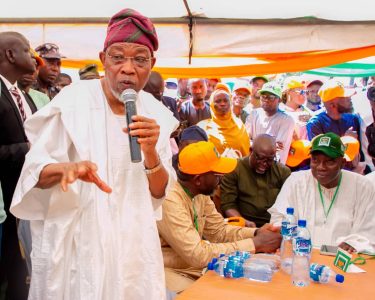Some people talk too much for someone who saw too little. Ismail Omipidan, former press secretary turned self-appointed custodian of political truth, is one of them.
Let’s not mince words: Omipidan is a spectator in a war waged by giants. The rift between Rauf Aregbesola, Bola Tinubu, and Gboyega Oyetola is not a whisper it’s a roar that’s echoed from Bourdillon to Abere. Everyone in Nigerian politics knows it. Only Omipidan, in his convenient cocoon of denial, pretends it doesn’t exist.
Let’s call his bluff.
Rauf Aregbesola wasn’t just Tinubu’s trusted ally he was his right hand, the architect of political conquests across the South West. He built, he delivered, and for years, he stood as the visible symbol of Tinubu’s might. But loyalty, no matter how deep, means little when it is met with silence and subtle sabotage. Aregbesola’s political sidelining wasn’t a result of rebellion it was a calculated consequence of refusing to be silent in the face of creeping betrayal. And at the center of that betrayal stood Gboyega Oyetola the handpicked successor who cloaked personal ambition in quiet obedience. When Aregbesola needed a brother, Oyetola chose the shadows. He didn’t just ascend to power he watched his benefactor be cut out, and said nothing.
Bola Tinubu didn’t shout. He didn’t need to. His silence spoke louder than any press statement. The same man who once hailed Aregbesola as a political soulmate quietly withdrew not in public, but in strategy. Appointments were denied, access was revoked, and suddenly, the man who helped build the empire found himself outside the gates. It wasn’t just about Aregbesola’s outspokenness it was about a system that punishes independent thought, especially when it comes from those who once held the king’s sword. Tinubu didn’t attack Aregbesola he simply disengaged, disowned, and disappeared. And Oyetola? He stood by, arms folded, watching it all play out like a dutiful heir finally clearing the room of the old guard.
And now, in the thick of this historic rift, here comes Ismail Omipidan loud, eager, and completely out of depth. A former press secretary who mistakes proximity for relevance. A man who wants to rewrite a story he was never qualified to tell. Omipidan didn’t witness the real fractures. He wasn’t at the dinner tables, in the phone calls, or behind the closed doors where loyalty was tested and trust was broken. He’s not a chronicler of truth he’s a political ventriloquist, mouthing off scripts handed down by handlers trying to control the damage. He speaks of peace where there is none, of unity where only silence and resentment remain. Omipidan is not just out of line he’s out of place.
This isn’t a story for press secretaries who only know the headlines. This is a story for those who lived the betrayals, felt the cold shoulders, and watched old friendships fracture under the weight of ambition and silence.
If Omipidan wants to be part of this conversation, he must first admit one thing: he isn’t part of this story. He never was.
The truth, painful as it may be, deserves to come from the men who made and broke alliances not from the mouthpiece trying to cover up the cracks.




